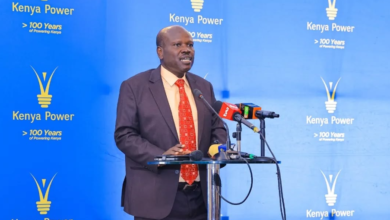
Nissan Motor Company will spend Ksh.1.9 trillion (2 trillion yen) over the next five years to electrify its cars amidst looming calls for the world to go green.
It’s also aiming to catch up with other competitors in the market in one of the fastest growth areas for the automobile industry.
The amount is two what Nissan has spent for the past 10 years for a share of the Electric Vehicle market as rivals, including Toyota Motor and newer entrants such as Tesla move ahead with their electric-car plans.
According to Nissan, it aims to introduce 23 electrified car models by 2030, and wants to reduce lithium-ion battery costs by 65 percent within eight years. It also plans to introduce potentially game-changing all solid-state batteries by March 2029.
“We will advance our effort to democratise electrification,” Chief Executive Makoto Uchida said in an online presentation.
Shares of Nissan fell as much as 5.1 percent, underperforming its major rivals. They were down 3.8 percent in afternoon trading.
Global electric car registrations in 2020 grew 41 percent even as the overall car market contracted by almost a sixth, according to the International Energy Agency (IEA).

At the U.N. Climate Summit in Glasgow this month, major carmakers, including General Motors and Ford Motor Company , signed a declaration that committed them to phase out fossil fuel vehicles by 2040.
Nissan, however, has not committed to abandoning gasoline vehicles. It said half of its vehicles mix will be electrified by 2030, including EVs and its e-Power hybrids.
As it looks forward to competing for the growing demand for EVs, Nissan in July pledged $1.4 billion with its Chinese partner Envision AESC to build a giant battery plant in Britain that will power 100,000 vehicles a year including a new crossover model.
Those power packs are attractive to automakers because they are more energy dense and less prone to catching fire than liquid lithium-ion power packs. They are, however, prone to cracking and currently are more expensive to produce.
Nissan said its goal is to bring the cost of solid state batteries down to $75 per kilowatt-hour (kWh) in 2028 and further cut it to $65 per kWh in the future to make them competitive with gasoline vehicles.





